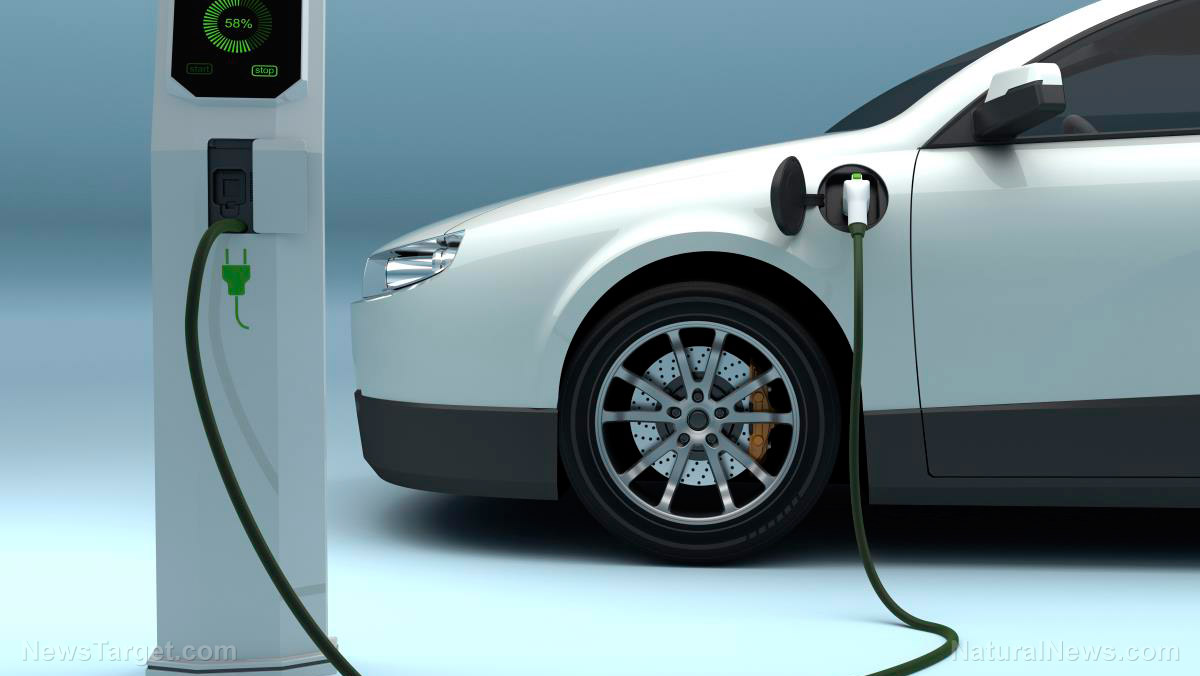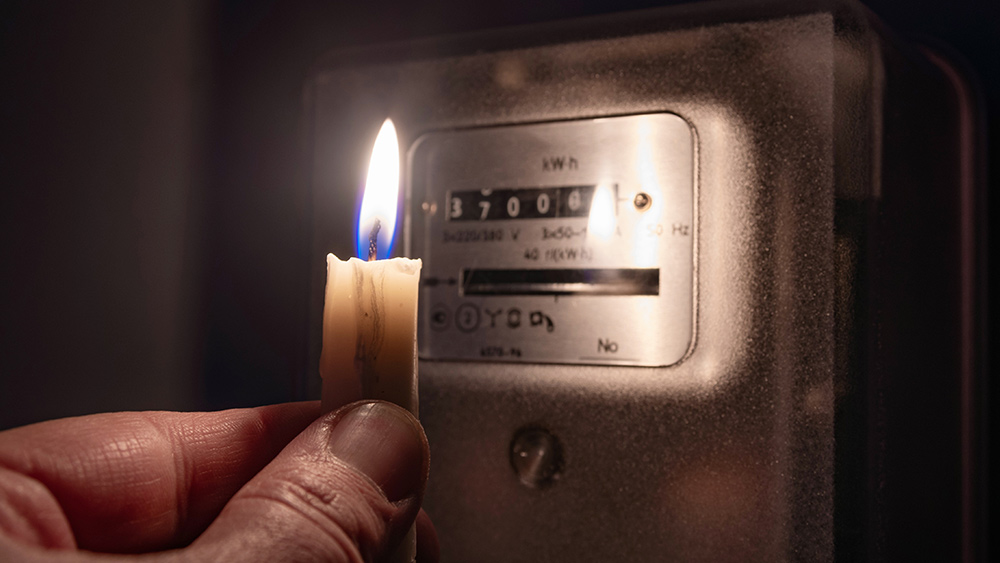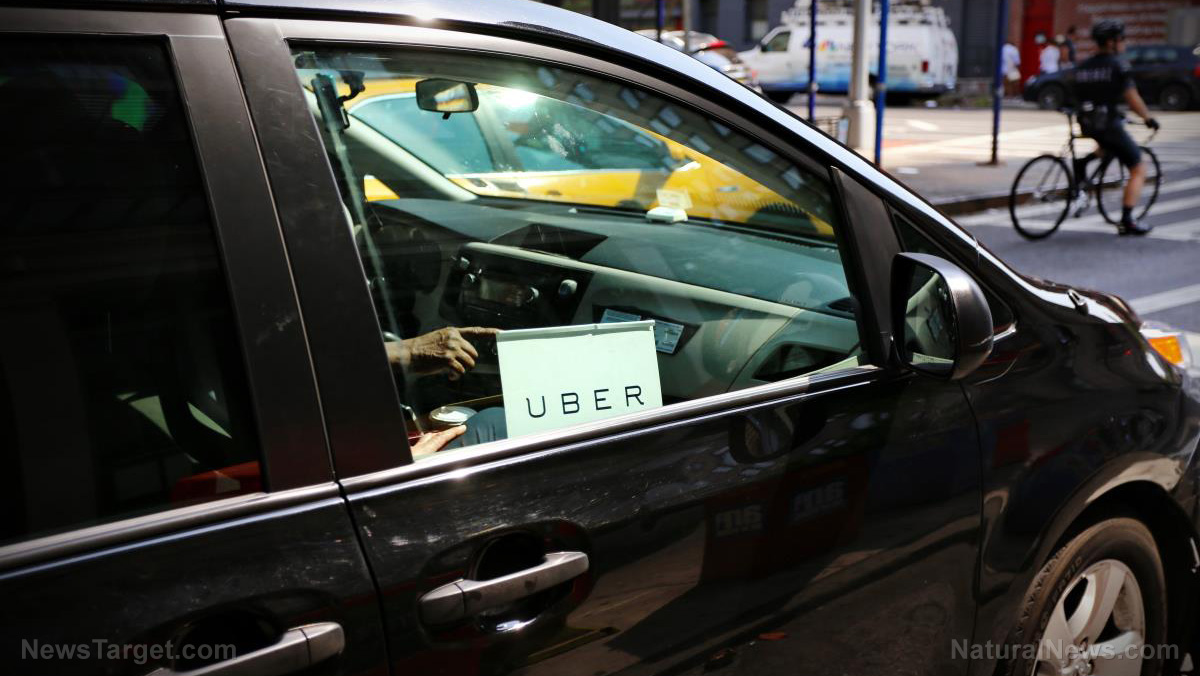EVs on the verge of becoming UNINSURABLE due to HIGH COST of battery repairs
11/08/2023 / By Laura Harris

Electric vehicles (EVs) in the U.K. are on the verge of becoming uninsurable because of the high cost associated with fixing their batteries.
Jonathan Hewett, CEO of the motor insurer-funded automotive research firm Thatcham Research, issued this warning. According to him, the lack of “insight and understanding” about the cost of repairing damaged EV batteries leads to increased insurance premiums. In some cases, it has even led insurance providers to refuse whole vehicle coverage for EVs.
While EV owners are burdened with insurance costs, with some quotes exceeding £100 ($122.90) per week and reports of premiums doubling or even tripling compared to 2022, insurance providers like John Lewis Financial Services (JLFS) and Aviva have already stopped offering car insurance to EVs. Aviva temporarily withdrew insurance products for the Tesla Model Y earlier this year before reinstating them, while JLFS stopped entirely after its underwriter Covea assessed the risks and costs. (Related: Electric cars lose value TWICE as fast as gas vehicles, study finds.)
A report by the Association of British Insurers (ABI) appeared to back up Hewett’s warning. Its report said the costs of EV battery repairs increased by 33 percent in the first quarter of 2023, compared to the same period in 2022. This increase contributed to record-high annual premiums.
Moreover, the average insurance costs for EVs surged by 72 percent in September 2022. This far outpaced the 29 percent increase for gasoline and diesel vehicles.
Government guidelines calling for EVs with damaged batteries to be “quarantined” at least 50 feet apart in repair yards to mitigate the risk of battery-related explosions also contribute to this risk. Based on estimates by Thatcham Research, insurers need to invest an additional £900 million ($1.1 billion) per year in quarantine facilities by 2035. These changes would add £20 ($24.60) per year to all car insurance premiums.
U.K. has a shortage of skilled EV technicians
Meanwhile, top mechanic and vlogger Scotty Kilmer disclosed that the U.K. has a shortage of skilled EV technicians. He predicted that the country could face a shortage of around 25,000 EV technicians by the end of the decade, potentially leaving electric car owners without access to necessary repairs.
Kilmer pointed out in a video on his YouTube channel that EV technicians are at risk when they repair electric cars. To make things worse, their compensations does not equate with the danger they face.
“One thing about electric cars, of course, [is] they are high-voltage. They could be 400, 600, 800 volts; they could kill you. Technicians don’t usually get paid that well,” he remarked.
“Why would you want to risk your life? At least when you’re working on a gasoline or a diesel car, the electrical power is so low – mainly 12 volts, some 24 volts. It’s not going to kill you, but these other ones can.”
Kilmer noted that the dangers EV technicians face are supported by many incidents of EV batteries catching fire in the years since their release. In 2022, the London Fire Brigade identified e-bikes and scooters powered by lithium-ion batteries as the fastest-growing fire risk in the city, responding to 87 e-bike and 29 e-scooter fires. These incidents usually happen during the “thermal runaway” phase when a battery overheats, which usually ends up in flash fires, explosions and flaming jets that last for up to 49 minutes.
“The challenge is that we have no way of understanding whether the battery has been compromised or damaged in any way,” said Hewett. “The threat of thermal runaway means that a catastrophic fire can take place if the cells of the battery have been damaged in a collision.”
Learn the truth about how inefficient and not climate-friendly electric vehicles are at RoboCars.news.
Watch this video discussing how electric vehicles are not safe, effective or green.
This video is from The Prisoner channel on Brighteon.com.
More related stories:
Widow SUES Tesla over “dangerous” electric vehicle that KILLED HER HUSBAND.
Sources include:
Submit a correction >>
Tagged Under:
battery repair, bubble, car insurance, collapse, dangerous, electric cars, electric vehicles, energy supply, EV batteries, EV technicians, finance riot, future tech, green living, Green New Deal, inventions, Jonathan Hewett, market crash, money supply, power, products, risk, Scotty Kilmer, Thatcham Research
This article may contain statements that reflect the opinion of the author
RECENT NEWS & ARTICLES
COPYRIGHT © 2022 EnergySupply.news
All content posted on this site is protected under Free Speech. EnergySupply.news is not responsible for content written by contributing authors. The information on this site is provided for educational and entertainment purposes only. It is not intended as a substitute for professional advice of any kind. EnergySupply.news assumes no responsibility for the use or misuse of this material. All trademarks, registered trademarks and service marks mentioned on this site are the property of their respective owners.



















